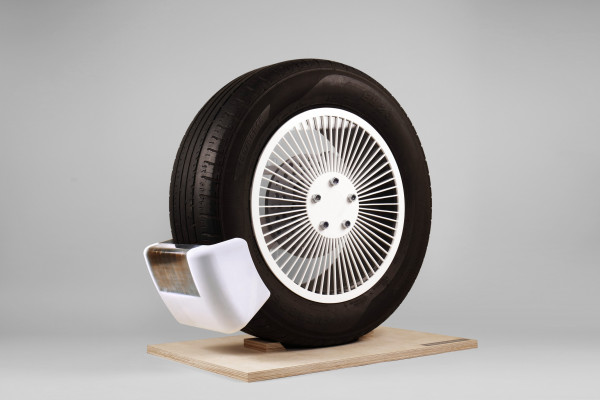A student group have come up with a device for capturing bits of tyre as they come off...
Interviews about Engineering
Interviews about engineering, civil engineering, manufacturing, jet engines, materials science and transport...
Cocaine-use has been linked with a build-up of iron in the brain.
One of America's most hated spiders isn't all bad: its web could teach us to make much tougher materials.
What's it like to be able to hear again with a 'bionic ear'?
What's the difference between a meteorite, an asteroid and a comet?
Naked Scientist Connie Orbach won a meteorite and Graihagh Jackson made it her mission to find out more...
How and why are they so much more efficient than a standard light bulb?
Scientists have tied the world's smallest knot; less than a millionth of a millimetre across.
Alan Calverd tells us about some interesting gold rings back in science history...
How do you navigate an empty craft through millions of miles of space?
Could a pair of trousers which track your movements help firefighters or the military?
Driverless cars could change the world- but what legal and ethical challenges do they bring with them?
Could our navigation technology actually be getting in the way of looking where we are going?
GPS is useful, but it has a number of problems, and doesn't work well inside buildings. Could a Cambridge startup...
What is GPS, and how does it tell you where you are?
How ancient mariners managed to get around, with help from coconuts!
The annual International Conference of Navigation was held in Glasgow this year, and we spoke to the president.
Three Brits take the prize for their discoveries on abrupt changes in the properties, or phases, of ultra-thin...
We've all heard of holograms that use light, but what about a sound hologram that allows you to move particles...
Could a light bulb be the latest in internet connectivity? Quite possibly...
What is the Gaia mission and how did it come about in the first place?
Part 1 of George Seabroke's poem Gaia.
What are the instruments on board Gaia and how do they work?
Part 2 of George Seabroke's poem Gaia.
What will Gaia do for the future of space research?
